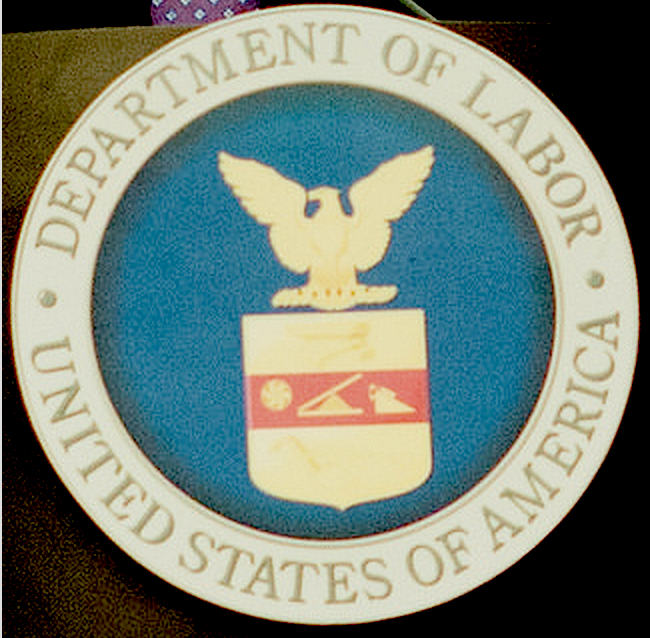
Several organizations representing senior living providers have told the U.S. Department of Labor that they oppose a proposed rule that would extend Fair Labor Standards Act overtime protections to almost 5 million “white collar” workers within the first year of its implementation. The department received more than 5,700 comments on the rule, published in the July 6 Federal Register, by the Sept. 4 deadline.
The proposed rule would make salaried employees who earn less than $921 per week ($47,892 annually) eligible for overtime; the current rule applies to those making less than $455 per week ($23,660 annually). To come within the exemption for highly compensated employees, such employees would need to earn equal to the 90th percentile of earnings for full-time salaried workers ($122,148 annually) as opposed to the current $100,000. And the labor department is proposing that the salary and compensation thresholds automatically be updated annually using either a fixed percentile of wages or the Consumer Price Index for All Urban Consumers.
James Balda, president and CEO of the Assisted Living Federation of America, and David Schless, president of the American Seniors Housing Association, wrote Sept. 4 to urge the labor department to withdraw the rule for five reasons: 1) the proposed minimum salary “is much too high,” 2) the proposed salary level will “undermine” the statutory purpose of the white collar exemptions, and 3) bonuses and commissions should be counted fully toward the minimum salary level, 4) the department lacks authority to automatically index the new minimum salary level, and such indexing is bad policy, and 5) revision of the duties test is not needed.
“The proposed drastic increase in the minimum salary of exempt staff, if allowed to become final, would be harmful to employers as well as to many of their currently exempt employees, and to the senior living industry as a whole,” Balda and Schless wrote in their comments. Reclassification of white collar employees, they wrote, also would restrict employer flexibility in providing services and care to residents, harm career advancement opportunities for employees and lower morale for reclassified exempt workers. “Finally, the proposed changes will increase the likelihood of lawsuits and will increase the administrative costs of senior living operations, with little or no benefit to the employees themselves,” Balda and Schless wrote.
Meanwhile, the American Health Care Association and National Center for Assisted Living asked the labor department not to apply the proposed rule to assisted living operators and providers of long-term and post-acute care.
Assisted living residents increasingly rely on Medicaid payments, wrote Urvi Patel, the groups’ senior manager of quality improvement, and Lindsay Schwartz, senior director of workforce and quality improvement, on Aug. 28. “These providers are not able to raise prices in order to meet the requirements of the changes in this proposed rule,” they said.
Long-term and post-acute care providers depend almost exclusively on government funding for their operations, Patel and Schwartz wrote, so they would not be able to raise prices to meet the proposed rule’s requirements either.
LeadingAge’s members are “overwhelmingly opposed” to the proposed rule, wrote Cheryl Phillips, MD, senior vice president of public policy and health services, on Sept. 1. Although the salary test for overtime should be updated and members of the workforce deserve adequate compensation, she said, the proposed increase “is simply too much too quickly for our members, all of whom are not-for-profit and most of whom rely heavily on payments from Federal healthcare and/or housing programs, to absorb.”
LeadingAge recommends scaling back the increase in the salary test to $35,000 in 2016 dollars, extending the enforcement deadline to enable employers time to train any formerly exempt employees regarding proper work practices for non-exempt employees, and not changing the current system for salary and compensation threshold adjustments, Phillips wrote.
LeadingAge was one of 147 nonprofit organizations that came together to request a 60-day extension of the comment period, through Nov. 3. That request came in an Aug. 5 letter on letterhead from Independent Sector and the National Council of Nonprofits.
“Like other sectors and industries, we recognize that the proposed rules may lead to significant changes in the way we manage our staffs and budgets,” the letter stated. “Unlike for these other potential respondents, however, new wage and compensation structures may also result in a fundamental shift—either positive or negative depending on the missions of individual organizations—in the type and volume of community needs our sector can address. This requires a secondary, higher-level analysis of these rules’ impact on our programming.”
LeadingAge PA President and CEO Ronald Barth, in a letter dated Sept. 1, wrote that the proposed rule could be “devastating” to entities represented by his association, because a large portion of their business costs are related to staffing. “As stated in the regulations,” he wrote, “the proposed rule is estimated to transfer over a billion dollars from employers to employees annually, leaving aside the regulatory adjustment costs, the additional costs of tracking hours for additional employees, and the revisions to personnel policies and benefits that will be required. For non-profits, this transfer of funds does not come out of profits and distributions to shareholders, but instead, directly reduces funding available to provide care and services.”
Unintentional outcomes of the proposed rule, Barth said, include that some formerly exempt employees may feel insulted or inconvenienced by having to track their hours or limit their work hours to avoid overtime, or they may be dismayed when benefits reserved for exempt employees are stripped from them because their status has changed to non-exempt.
“While the amount of wage or salary is very important, it is not always the amount of take-home pay that is the most appreciated reward for a job well done,” he wrote.



